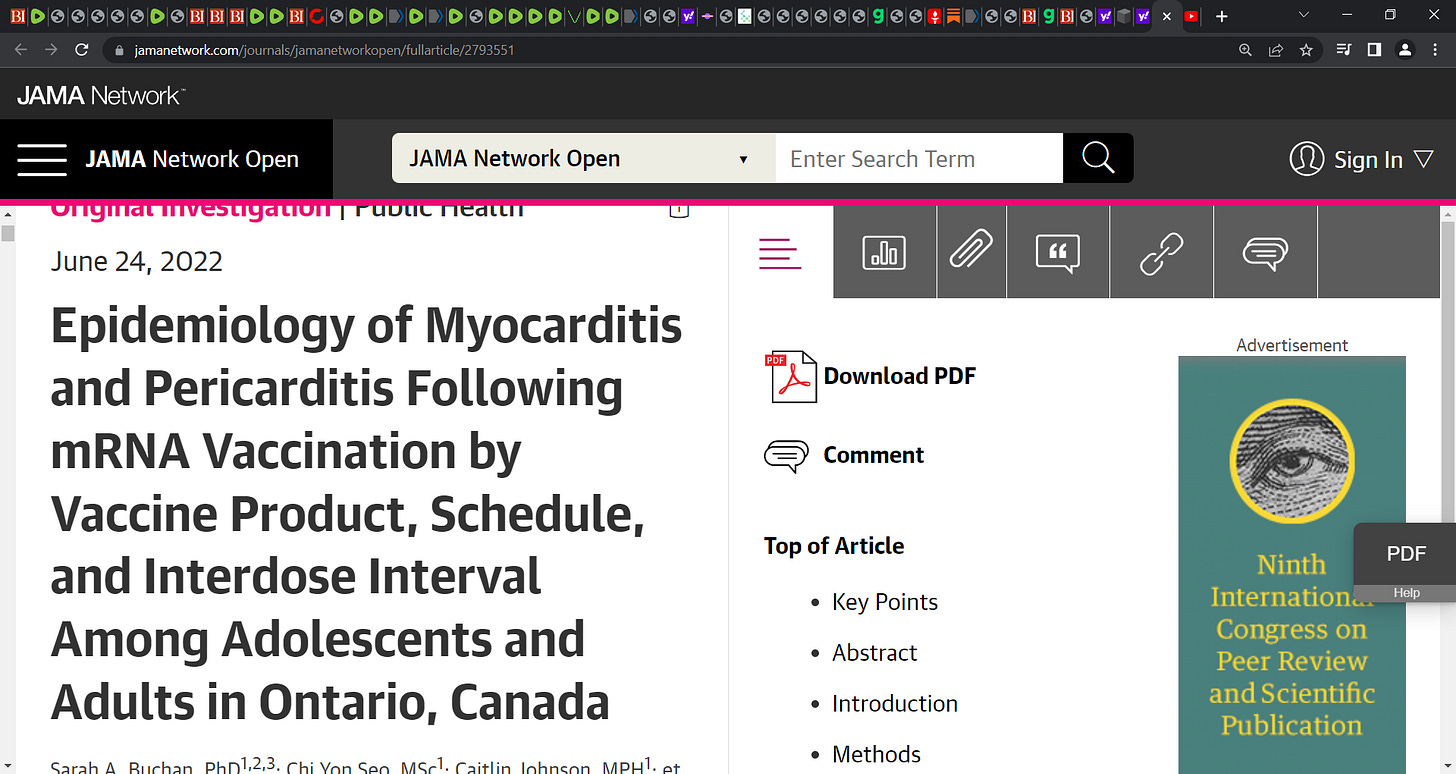
297 Ontario persons with myocarditis or pericarditis linked to MODERNA jab relative to Pfizer jab in males 18-24 years old, 2nd dose. Recall the Thai study showed elevated risk linked to the mRNA Pfizer. So both of these injections show risk in males (young men) for myocarditis or pericarditis.
‘This population-based cohort study of 297 individuals in Ontario, Canada, with myocarditis or pericarditis following COVID-19 vaccination found higher rates of myocarditis or pericarditis associated with receipt of mRNA-1273 compared with BNT162b2 as a second dose, particularly among male individuals aged 18 to 24 years. Higher rates were also observed with shorter interdose intervals.
Meaning The results suggest that there may be product-specific differences in rates of myocarditis or pericarditis after receiving mRNA vaccines’‘

‘297 reports of myocarditis or pericarditis meeting the inclusion criteria; 228 (76.8%) occurred in male individuals, and the median age of individuals with a reported event was 24 years (range, 12-81 years). Of the reported cases, 207 (69.7%) occurred following the second dose of the COVID-19 mRNA vaccine. When restricted to individuals who received their second dose during the period of enhanced passive surveillance (on or after June 1, 2021), the highest rate of myocarditis or pericarditis was observed in male individuals aged 18 to 24 years following mRNA-1273 as the second dose (299.5 cases per 1 000 000 doses; 95% CI, 171.2-486.4 cases per 1 000 000 doses);
the rate following BNT162b2 as the second dose was 59.2 cases per 1 000 000 doses (95% CI, 19.2-138.1 cases per 1 000 000 doses). Overall rates for both vaccine products were significantly higher when the interdose interval was 30 or fewer days (BNT162b2: 52.1 cases per 1 000 000 doses [95% CI, 31.8-80.5 cases per 1 000 000 doses]; mRNA-1273: 83.9 cases per 1 000 000 doses [95% CI, 47.0-138.4 cases per 1 000 000 doses]) compared with 56 or more days (BNT162b2: 9.6 cases per 1 000 000 doses [95% CI, 6.5-13.6 cases per 1 000 000 doses]; mRNA-1273: 16.2 cases per 1 000 000 doses [95% CI, 10.2-24.6 cases per 1 000 000 doses]).’


![Ivermectin: The Truth [VIDEO] From legendary filmmaker Mikki Willis. Follow the Official Plandemic Series on Rumble:](https://shtf.tv/wp-content/uploads/2022/08/Ivermectin-150x150.png)
